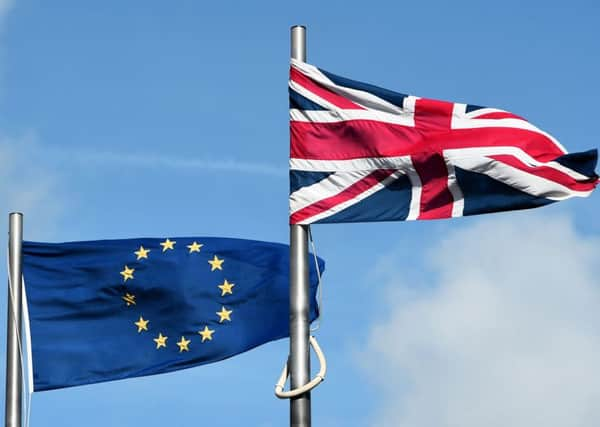Michael Sturrock: EU offers gold mine of opportunity


I am a Scottish student whose fiscal foolishness meant I turned down free higher education to venture south of the Border to do a particular course that was not offered in Scotland. I don’t regret my decision and have had a greatly enjoyable time at the University of Sheffield. However, promptly after I graduate, the loans taken to help pay my £9,000-per-year tuition fees will begin amassing more interest than an open bar during Freshers Week. I won’t have to pay back as much as I originally thought, though.
For this, I have the EU to thank. In my second year of study, I was offered a position on the Erasmus scheme — an EU project that allows young people to study, train or work throughout Europe for up to a year. As part of the deal, my fees were slashed by £7,665. Not only this, all 17,806 Erasmus students and staff from the UK receive grants of up to ¤300 per month to help with living costs, with further bonuses for those from disadvantaged backgrounds. Studying in Paris, I was eligible for benefits from the French government to help with rent. Friends studying in other countries received similar benefits too. All in all, my year in Paris cost a fraction of the price of staying in the UK for my second year.
Advertisement
Hide AdAdvertisement
Hide AdThese were just the monetary benefits. In my mind, it now seems bizarre that Brussels should have an image problem with young people. Granted, the EU is a colossal governmental entity with as much appeal as the next bureaucratic institution. Nevertheless it provided the means by which I could live, study and subsequently work in another country - an experience that has brought great richness and fulfilment to my life.
Going to a new university, exploring a new city and attempting to speak a new language were invaluable experiences which I have learnt from hugely and shall not forget. Likewise, many friends in other countries share similar feelings from their experiences in Maastricht, Warsaw, Vienna and Berlin; to name but a few.
I feel connected to a community that expands across Europe and beyond, yet it feels as fraternal as the links I share with my friends in Sheffield or Edinburgh. It is links such as these which shall be vital in instilling values of world-wide cooperation necessary to tackle the global problems we face, such as climate change, mass migration and international terrorism.
It is definitely a problem that the EU does not effectively advertise the fact it can offer such wealth of opportunity and excitement to young people. Like the Erasmus scheme, the “Eures” Job Scheme offers opportunities with financial aid for young people aiming to enter the working world at home or around Europe. I wager anyone who has utilised schemes like these will argue the EU has been a positive force in their lives.
Clearly, most young people feel the EU is not much more than a convenient political association. Yet it is truly a gold mine of opportunity based on worthy ideals.
This experience was afforded to me because the EU is founded on principles of cooperation. There is a shared desire to learn from and give to other nations so that we all collectively benefit and grow. From this we can offer opportunities similar to mine; where people are aided in their professional, academic and personal growth. This is the side of the EU that should be publicised and engaged with ahead of the referendum.